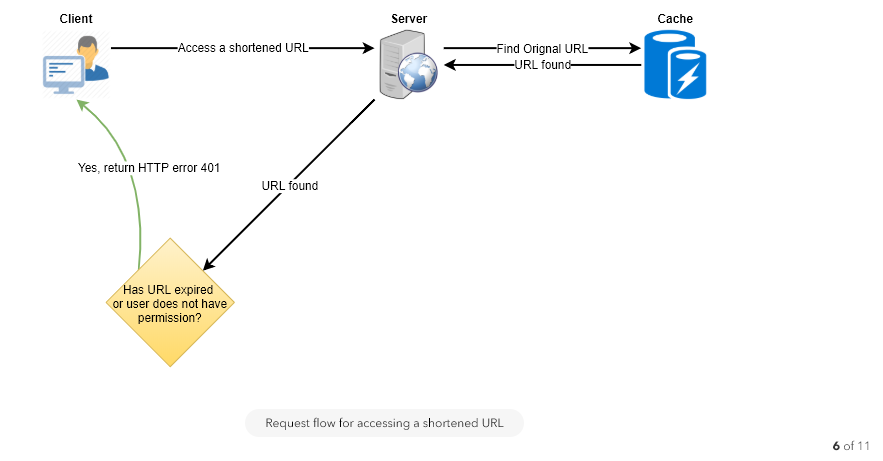

- SYSTEM DESIGN TINYURL FOR FREE
- SYSTEM DESIGN TINYURL UPDATE
A lower case alphabet 'a' to 'z', a total of 26 charactersĢ.

An upper case alphabet 'A' to 'Z', a total of 26 charactersģ.

In this POC, we will not be supporting custom short links A digit '0' to '9', a total of 10 charactersĤ.
The length of our UUID should be ≤ 8 characters as 62⁸ would give us about ~218 trillion possibilities. The short URL generated should never expire. SYSTEM DESIGN TINYURL FOR FREE
#TINYURL SYSTEM DESIGN FOR FREE#Īs a result, our constraints depend largely on Cloudflare Worker’s pricing and platform limits.Īt the time of writing this, the constraints per account to host our service for free are: The aim is simple - I want to be able to host this service for free. Like most URL shorteners, our application is expected to encounter high reads but relatively low writes. Moving on from our previous constraints, the free tier of KV and limit allows us to have: To store our data, we will be using Cloudflare KV, a key-value data store that supports high read with low latency - perfect for our use case.
1 GB of stored data (key size of 512 bytes value size of 25 MiB). Here, I am using this tool to estimate the byte size of the URL: With 1 GB of free maximum stored data limit in mind, let’s try to estimate how many URLs can we possibly store. Since our UUID should only be a maximum of 8 characters, we have no issue with the key size limit. The value size limit on the other hand - I am making a calculated guess that the maximum URL size should average around 200 characters. Thus, I believe it is safe to assume that each stored object should be an average of ≤400 bytes, which is very well below 25 MiB. And finally, with 1 GB to work with, our URL shortener can support up to a total of 2,500,000 (1 GB divided by 400 bytes) short URLs. Looking back, we could have made the length of our UUID ≥ 4 instead of 8 as 62⁴ possibilities are well more than 2.5 million. Having that said, let’s stick with a UUID with a length of 8. Overall, I would say that the free tier for Cloudflare Worker and KV is pretty generous and decent enough for our POC. Do note that the limits are applied on a per-account basis.Īs I mentioned earlier, we will be using Cloudflare KV as the database to store our shortened URLs as we are expecting more reads than writes. One important note - while KV can support exceptionally high read globally, it is an eventually consistent storage solution. creating a short URL) may take up to 60 seconds to propagate globally - this is a downside we are okay with. Through my experiments, I have yet to encounter anything more than a couple of seconds. Reading about how KV works, KV is not ideal for situations that require atomic operations (e.g. 
a bank transaction between two account balances). Lucky for us, this does not concern us at all.įor our POC, the key of our KV would be a UUID that follows after our domain name (e.g. s./ UcFDnviQ) while the value would consist of the long URL given by the users. # This namespace is used for `wrangler dev` local testing: To create a KV, simply run the following commands with Wrangler CLI.
SYSTEM DESIGN TINYURL UPDATE
Wrangler kv:namespace create "URL_DB" -previewįor creating these KV namespaces, we also need to update our wrangler.toml file to include the namespace bindings accordingly.








 0 kommentar(er)
0 kommentar(er)
